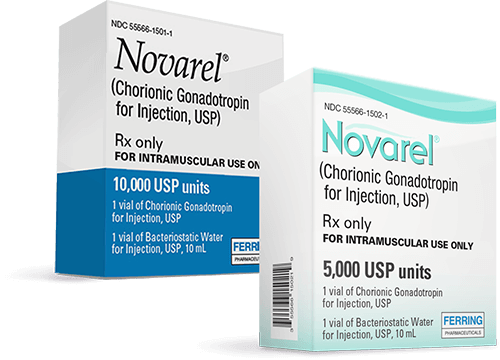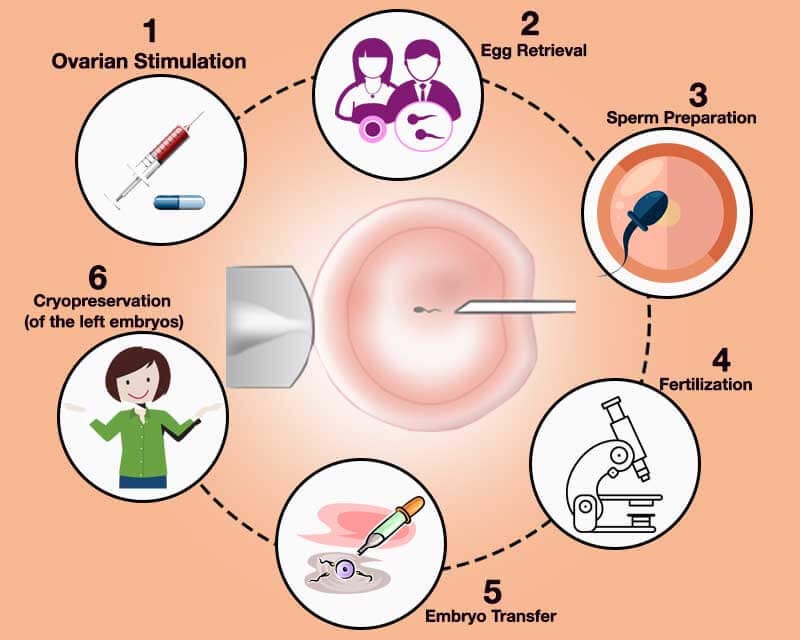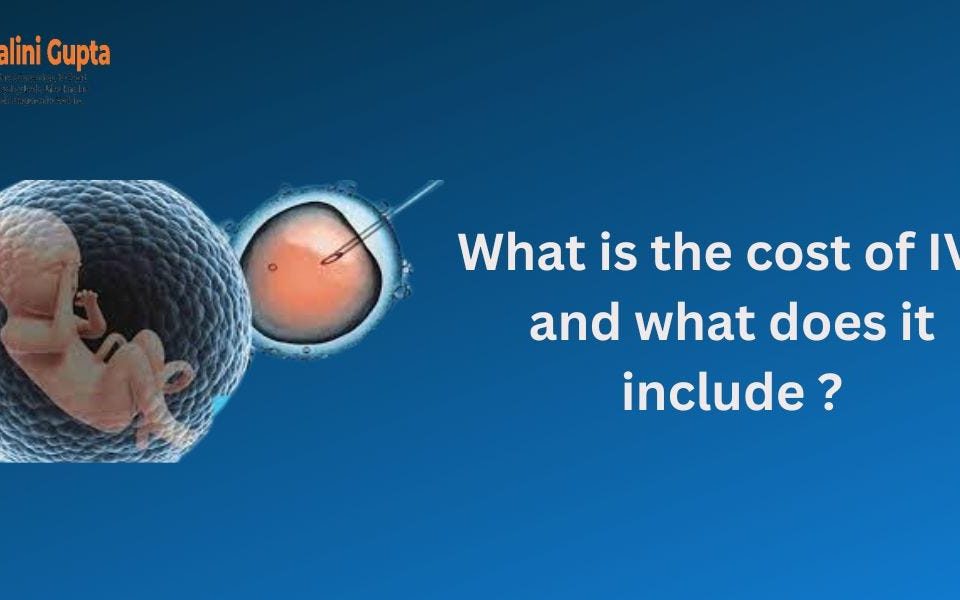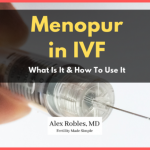
What Does Menopur Do in IVF? Your Guide to This Key Fertility Drug
April 30, 2025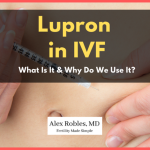
What Does Lupron Do in IVF? Your Guide to This Key Fertility Drug
April 30, 2025What Does the Bible Say About IVF?
In vitro fertilization (IVF) has become a beacon of hope for millions of couples struggling to have children. It’s a modern medical marvel, blending science and the deep human desire to build a family. But for people of faith, especially Christians, it’s not just a medical choice—it’s a spiritual one too. What does the Bible, a book written thousands of years before test tubes and petri dishes, have to say about something as cutting-edge as IVF? That’s the question we’re diving into today. Whether you’re wrestling with infertility, supporting a loved one, or just curious about how faith and science intersect, this article is for you. We’ll explore the Bible’s timeless principles, unpack the ethical layers of IVF, and offer practical insights to guide you through this deeply personal journey.
The Bible and IVF: A Starting Point
The Bible doesn’t mention IVF by name. That’s no surprise—it was written long before anyone dreamed of fertilizing an egg outside the body. The first IVF baby, Louise Brown, was born in 1978, while the Bible’s newest parts date back nearly 2,000 years. So, if you’re looking for a verse that says, “Thou shalt use IVF,” you won’t find it. But that doesn’t mean Scripture is silent. The Bible is full of principles about life, family, and God’s design that we can apply to modern questions like this one.
At its core, IVF is about creating life. A doctor takes an egg from a woman, combines it with sperm in a lab, and, if all goes well, transfers the resulting embryo into a womb to grow into a baby. For many, it’s a lifeline after years of heartbreak. For others, it raises tough questions: Is this playing God? What happens to unused embryos? Does this fit with God’s plan for families? To answer these, we need to dig into what the Bible values most—life, marriage, and trust in God.
God’s Heart for Children and Families
One thing the Bible makes crystal clear is that God loves children. They’re not just a bonus to life; they’re a blessing straight from Him. Psalm 127:3 says, “Children are a heritage from the Lord, offspring a reward from him.” In a time when big families meant survival and strength, this verse carried weight. Even today, it speaks to the joy and purpose kids bring.
The Bible is also packed with stories of infertility—and God stepping in. Think of Sarah, Abraham’s wife, who waited decades for Isaac (Genesis 21:1-7). Or Hannah, who prayed so hard for a son that the priest thought she was drunk (1 Samuel 1:10-20). These women didn’t have IVF, but their longing for a child echoes what many feel today. God heard their cries and gave them babies, showing His compassion for those who ache to be parents.
So, does IVF align with this? On one hand, it fulfills that deep, God-given desire for kids. Couples who turn to IVF often see it as a tool—like medicine for any other condition—to receive the blessing of a child. But the process isn’t simple, and some parts of it spark debate among Christians. Let’s break it down.
The Big Ethical Questions Around IVF
IVF isn’t just a medical procedure; it’s a moral maze. For Christians, three big issues stand out: the sanctity of life, the role of marriage, and trusting God’s timing. Each one ties back to biblical values, and each one deserves a closer look.
The Sanctity of Life: What Happens to Embryos?
The Bible teaches that life is sacred from the start. Psalm 139:13-14 paints a beautiful picture: “For you created my inmost being; you knit me together in my mother’s womb. I praise you because I am fearfully and wonderfully made.” Many Christians take this to mean life begins at conception—when sperm meets egg, a unique human soul is formed.
In IVF, doctors often create multiple embryos to boost the chances of success. A typical cycle might produce 5-10 embryos, but only one or two get implanted. What happens to the rest? Some are frozen for later, some are donated, and some are discarded. That last option—discarding embryos—troubles many believers. If life begins at conception, is throwing away an embryo the same as ending a life? It’s a heavy question.
Science backs up the complexity here. A 2023 study from the American Society for Reproductive Medicine found that about 1.7 million embryos are created annually in the U.S. through IVF, with roughly 60% either frozen or discarded over time. That’s a staggering number, and it forces us to ask: How do we honor life in this process?
Practical Tip: If you’re considering IVF and this weighs on you, look into “embryo adoption.” Programs like Snowflakes Embryo Adoption let you donate unused embryos to other couples, giving them a chance at life. It’s a way to align science with your faith.
Marriage and Procreation: God’s Design?
The Bible ties sex, marriage, and kids together tightly. Genesis 2:24 says a man and woman become “one flesh” in marriage, and Genesis 1:28 tells them to “be fruitful and increase in number.” For centuries, Christians have seen this as God’s blueprint: marriage leads to intimacy, which leads to babies.
IVF shakes that up. Fertilization happens in a lab, not a bedroom. Some argue this breaks the “one flesh” bond—like using a shortcut instead of God’s path. Others say it’s no different from other medical help, like a C-section or heart surgery, that steps in when nature falters.
Then there’s the question of donors. Some couples use donor eggs or sperm, bringing a third party into the mix. This can feel like it stretches the biblical idea of marriage beyond its limits. A 2024 survey by the Pew Research Center found that 35% of evangelical Christians oppose donor IVF for this reason, compared to just 12% of the general public. It’s a divide worth noting.
Practical Tip: If you’re uneasy about donors, stick to using your own eggs and sperm. Many clinics offer “minimal stimulation IVF,” which focuses on quality over quantity and keeps it between you and your spouse.
Trusting God’s Timing: Patience or Control?
The Bible calls us to trust God, even when life doesn’t go as planned. Proverbs 3:5-6 says, “Trust in the Lord with all your heart and lean not on your own understanding.” For some, IVF feels like taking control instead of waiting on God. Sarah and Abraham tried to speed things up with Hagar (Genesis 16), and it didn’t end well—could IVF be a modern version of that?
On the flip side, God gave us brains and tools to solve problems. Infertility isn’t new, and IVF might be a gift—like the wheel or penicillin—to overcome it. A 2025 report from the Guttmacher Institute showed that 1 in 6 couples face infertility today, a rise from 1 in 8 a decade ago. Maybe IVF is part of God’s provision in a broken world.
Interactive Quiz: What’s Your Take?
- Do you see IVF as a tool from God or a step too far?
A) A tool—God works through science.
B) Too far—it bypasses His natural design.
C) Not sure—depends on how it’s used.
Take a second to think about it. Your answer might shape how you read the rest of this!
How Christians View IVF: A Spectrum
Christians aren’t a monolith on this. Different groups bring different lenses, and it’s worth seeing where they land.
Evangelical Perspective: Caution and Care
Evangelicals often lean pro-life, so the embryo question looms large. Many support IVF if all embryos are implanted or preserved—no discarding allowed. The Southern Baptist Convention, in a 2024 statement, urged couples to “protect every human life, including those created through IVF.” It’s a call to balance hope with holiness.
Catholic Stance: A Firm No
The Catholic Church says no to IVF, full stop. The 1987 document Donum Vitae argues that it separates sex from procreation and risks treating embryos like products, not people. Catholics point to adoption or natural methods instead, trusting God’s will over lab solutions.
Progressive Christian View: Open Arms
More liberal Christians embrace IVF as a loving choice. They focus on compassion—God wants us to help the hurting, and IVF does that. A 2025 poll by Barna Group found that 68% of mainline Protestants see IVF as morally neutral or good, compared to 41% of evangelicals.
Table: Christian Views on IVF at a Glance
| Group | Stance on IVF | Key Concern | Alternative Suggested |
|---|---|---|---|
| Evangelicals | Cautious Yes | Embryo fate | Embryo adoption |
| Catholics | No | Separation of sex/procreation | Adoption, natural methods |
| Progressive Christians | Yes | Compassion for infertility | None—IVF is celebrated |
IVF in Real Life: Stories That Hit Home
Numbers and theology are one thing, but stories make it real. Meet Emily and Mark, a couple I know from church. After three years of trying, they turned to IVF. Their first cycle worked—a little girl named Grace. But they had four embryos left. Freezing them felt right at first, but now they’re torn: Should they try for another? Donate them? The weight of those tiny lives keeps them up at night.
Then there’s Sarah, a single woman who used donor sperm and IVF at 38. She’s a Christian who felt called to motherhood, married or not. Her son, Noah, is her world, but some in her Bible study group whisper that she stepped outside God’s plan. She wrestles with that, but wouldn’t trade Noah for anything.
These stories show IVF isn’t black-and-white. It’s messy, personal, and full of faith-stretching moments.
What Science Says: New Insights for 2025
Science keeps moving, and 2025 has brought fresh data to chew on. A study from the Journal of Reproductive Medicine found that “single embryo transfer” (SET) is on the rise—up 15% since 2020. SET means implanting just one embryo per cycle, cutting the risk of multiples and unused embryos. It’s a game-changer for Christians worried about life’s sanctity.
Another breakthrough: “time-lapse imaging.” Clinics now use cameras to watch embryos grow in real time, picking the healthiest ones without invasive testing. A 2024 trial at Stanford showed a 10% bump in success rates. Less guesswork, more precision—could this ease ethical tensions?
Checklist: Is IVF Right for You?
✔️ You’ve prayed about it and feel peace.
✔️ You’re okay with freezing embryos (or have a plan for them).
✔️ You and your spouse agree on the process.
❌ You’re rushing in without weighing the ethics.
❌ You see it as a fix for deeper trust issues with God.
Three Fresh Angles You Haven’t Heard
Most articles stop at embryos and marriage, but there’s more to explore. Here are three points that don’t get enough airtime—and they could shift how you see IVF.
The Emotional Toll: Beyond the Physical
IVF isn’t just needles and hormones; it’s an emotional rollercoaster. A 2025 study from the University of Pennsylvania found that 40% of IVF patients report depression symptoms, even if successful. The Bible says, “Hope deferred makes the heart sick” (Proverbs 13:12), and that fits here. Couples pour money, time, and tears into this—only to face failure half the time (success rates hover around 50% for women under 35, per the CDC).
Practical Tip: Build a support net. Join a church group or online forum like Resolve.org. You don’t have to carry this alone—Galatians 6:2 says to “bear one another’s burdens.”
The Cultural Shift: IVF and Delayed Parenthood
Here’s something new: IVF isn’t just for infertility anymore. More people are using it to delay kids until their 40s, chasing careers first. A 2025 Pew report says 1 in 5 IVF users now cite “timing” over medical need. The Bible doesn’t address this directly, but Proverbs 16:9—“The heart of man plans his way, but the Lord establishes his steps”—suggests a tension. Are we trusting God’s timing or rewriting it?
This trend worries some Christians. It can turn kids into a “capstone” achievement, not a cornerstone of life. Plus, success drops fast after 40—down to 5% per cycle, per the CDC. It’s a gamble that doesn’t always pay off.
Interactive Poll: What do you think?
- Should IVF be used to delay parenthood?
A) Yes—it’s a personal choice.
B) No—it risks God’s natural order.
C) Maybe—if it’s prayerfully considered.
Drop your vote in your head and see where you land!
The Global Lens: IVF Beyond the West
Most IVF talk focuses on the U.S. or Europe, but it’s exploding elsewhere. In India, IVF births doubled from 2018 to 2023, per the Indian Fertility Society. In Africa, clinics are popping up in cities like Nairobi, though costs (around $3,000 per cycle) lock out most families. The Bible’s call to “do justice” (Micah 6:8) raises a question: Is IVF a privilege for the rich, or should it be more accessible?
This global boom adds a layer. In some cultures, infertility carries huge stigma—IVF is a lifeline. But with fewer regulations overseas, embryo disposal rates can climb. It’s a trade-off worth pondering.
Practical Tip: If cost is a barrier, check out grants like Baby Quest Foundation. They help cover IVF for families worldwide, leveling the field a bit.
Navigating IVF as a Christian: A Step-by-Step Guide
So, you’re thinking about IVF. How do you move forward with faith intact? Here’s a roadmap to keep you grounded.
Step 1: Pray and Seek Counsel
Start with God. James 1:5 promises wisdom if you ask. Pray alone, pray with your spouse, and talk to a pastor or Christian counselor. Emily and Mark did this—they spent a month praying before their first cycle. It gave them clarity.
Step 2: Research Your Options
Not all IVF is the same. Look into SET or “natural cycle IVF” (fewer drugs, fewer embryos). A 2025 Fertility and Sterility study found natural IVF cuts embryo waste by 30%. Ask your clinic hard questions: What’s their embryo policy? Success rate? Cost?
Step 3: Set Ethical Boundaries
Decide what you’re okay with. Will you freeze embryos? Use donors? Mark and Emily chose to implant all viable embryos over time—no discarding. It’s slower, but it fits their beliefs.
Step 4: Lean on Community
Tell a few trusted friends or family. A 2024 Harvard study showed that social support boosts IVF success by 14%. Church can be tricky—some judge—but find your people. Sarah leaned on her sister, who prayed her through every step.
Step 5: Trust God, Whatever Happens
IVF isn’t a guarantee. If it works, praise God. If it doesn’t, He’s still good. Romans 8:28 says all things work for good for those who love Him. It’s not easy, but it’s true.
A Deeper Dive: IVF and God’s Sovereignty
Here’s a thought that doesn’t get enough play: IVF tests our view of God’s control. We like to think we’re in charge—picking embryos, timing shots—but so much is out of our hands. A 2025 Nature study found that even with perfect embryos, implantation fails 30% of the time for reasons science can’t explain. It’s a humbling reminder: God’s the ultimate life-giver.
This can be freeing. You do your part—pray, plan, act—but the outcome? That’s His. It’s like planting a seed and trusting the rain to fall. For Christians, IVF isn’t about forcing God’s hand; it’s about partnering with Him in a broken world.
Wrapping It Up: Your Journey, Your Faith
So, what does the Bible say about IVF? It doesn’t give a yes or no, but it offers guardrails: value life, honor marriage, trust God. IVF can be a beautiful tool to build a family, but it’s not without wrinkles—embryos, ethics, emotions. The key is to approach it with eyes wide open, heart in prayer, and hands ready to do what’s right.
You’re not alone in this. Millions wrestle with the same questions, and God’s big enough to handle them. Whether IVF is your path or not, the Bible’s promise holds: “He settles the childless woman in her home as a happy mother of children” (Psalm 113:9). That might look different for each of us, but it’s a hope worth clinging to.
Final Interactive Challenge: Write down one Bible verse that speaks to you about this—like Psalm 139:13 or Proverbs 3:5. Stick it somewhere you’ll see it. Let it guide you, whatever you decide.


